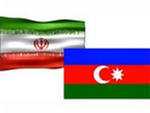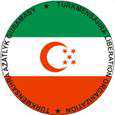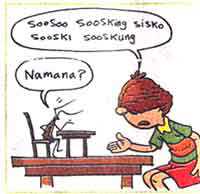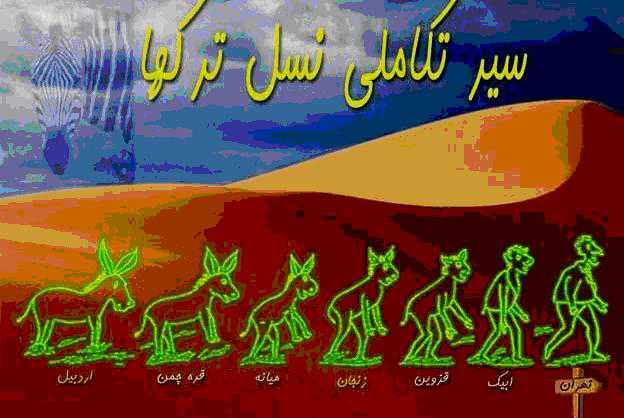
Gulnara Inanch, director Online International Information and Analytical center Ethnoglobus.az, related info turkishnews.com, [email protected]
On 12 and 13 April Ankara (Turkey) hold a forum of South Azerbaijanis. Public Forum was organized by the Organization of the Azerbaijanis in Turkey.
Director of the Center for Strategic Studies of Caucasian (Kafkassam) Dr. Hasan Oktay in an exclusive interview with AMI “News-Azerbaijan,” commented on the question of what was the purpose of this forum, and whyTurkey, afterIsrael, started paying attention to the issue ofSouth Azerbaijan.
– What are the goals of establishing in Turkey World Azerbaijani Congress (WAC)?
– World Azerbaijanis Congress has been active within recent years. Along with this, there are a number of similar structures. The Republic of Azerbaijan, developing close ties with the diasporas, through them, tries to promote the interests of the state. The successes of the Armenian and Jewish diasporas, which were taken as an example for Azerbaijan, has not yet borne fruit. It led to the occurrence of new organizations seeking funding proportions allocated for Azerbaijan, among them there is just a competition. This is the reason for creation of different organizations under the name of the World Azerbaijanis Congress (WAC). One can see that these different organizations, working with Jewish organizations in exchange for financial support create good relations between Jewish Organizations and southern Azerbaijanis.
Analogical efforts are short-term efforts. Here the main goal is money.
In order to get financing, WAC is divided into four parts. Israel also believes that through these organizations, establishes relationships with Iranian Azerbaijanis.
– The new Congress is established in Turkey, and what do you think, does it mean that Ankara, tries to take control of the organization of Iranian Azeris, like most of the world Azerbaijanism?
– We try to present the problem of Azerbaijan and southern Azerbaijanis to world community, in neutral and scientific manner. There are 35 million South Azerbaijanis in Iran and 9 million people live in the Republic of Azerbaijan. If we also add here the diasporas, then the number of Azeri Turks will be around 50 million people. Kafkassam, speaking more than a party, take into account the factor of this large ethnic group in the Caucasus, is trying to promote its activation and efficiency. Azerbaijan is trying to unite the world Azerbaijanis. At the same time carrying out activities in this direction not in Azerbaijan but in Turkey indicates the intention to rely on the strength of this country.
Therefore, the union of the forces ofAzerbaijan andTurkey in the diaspora, politics will be more effective. IfTurkey does not support this initiative ofAzerbaijan,Azerbaijan can expect disappointment. This is nothing more than an initiative. Such initiatives should be involved only non-governmental organizations.
– Jewish organizations and individuals representing Israel expanded the campaign to protect the rights of South Azerbaijanis. Do the Turkish non-governmental organizations coordinate the activities of Jewish organizations in this matter?
– The Iran-Israel tension covers a wide geographic region. This conflict will affect non-Persian ethnic as the elements of living in Iran.
Southern Azerbaijanis, as the most important element, coming to the first plan.
The main factor of the war is the exclusion of war opponents and forcing it into the peace on their own terms. It can be either by force or by using other methods, including outreach to compel the enemy to the peace negotiations.
Therefore, it is natural for Israel to use all non-military ways of forcing Iran to the peace. Southern Azerbaijanis and therefore go on the agenda.
Unfortunately, carrying on the agenda of the Iranian Azerbaijanis, are not considered internal conditions and other factors of Iran.
Azerbaijanis do not have to turn to the elements, such as the Kurds of Iraq, inviting Americans to the occupation of their homeland.
As a result, the future of the Kurds in Iraq is in doubt.
In its contacts with the Iranian Azeris we remind them of the Kurds, in what situation they were in the invasion of Americans in Iran.
They are warned to be more attentive to the issue of military operations in Iran.
Affirmation of Azerbaijanis as a significant element of Iranian democracy, it is very important from the perspective of the region’s future.
– Meanwhile, an Israeli social activist Avigdor Eskin is carrying out campaign with a group of Russian experts, including ethnic Jews for the rights of Iranian Azerbaijanis. It is believed that by this way, Israel and Jewish organizations, by protecting the rights of Iran’s Azeri nationalists, are trying to manipulate them. How can you comment on this campaign?
– We are closely watching activity of Avigdor Eskin. This is passing interest. Some Azeris are trying to capitalize on this partnership. They have no place in the South Azerbaijani politics. Azeri Turks of Iran will not get into the situation of the Kurds of Iraq. Israel should not turn into an instrument of Azeri Turks in a war with Iran. But it is a psychological operation. Israel, being in confrontation with Iran will use all non-military tools. The easiest of which are the Azerbaijani Turks.
Can Iran be drawn into a civil war in South Azerbaijan? This is the most important point on which most anti-Iranian forces sharpened. Unfortunately, many Iranian Azerbaijanis were forced to leave the country under pressure from the authorities, not finding shelter, are drawn into these games. It comes from the frustration of South Azerbaijanis. But such attempts have no chance to share Iran.
Southern Azerbaijanis, fighting for their basic rights and freedoms in Iran, can achieve the rule of democracy in the region. The biggest problem of Iran is the lack of democracy. Democratic Iran is a favorable country for South Azerbaijanis living here. Iran is the birthplace of South Azerbaijanis. Before the 1924 Iranian Turks were in power in Iran. Problems of Iranian Turks can be solved in a democracy.
Iran must take this into account. IfTehran continues to use unequal policy against Azerbaijanis, then later on the agenda may withdraw part ofIran. Iran, instead of the disturbances should be made available to Azerbaijanis for their rights.
– For a long time there are discussion on the possibility of abolishing the Committee on Diaspora in Azerbaijan and the creation of the department in the Ministry of Foreign Affairs in charge of the Diaspora. Because world organizations of Azerbaijan, in contrast to diaspora organizations of other nations, equal in Baku, between the creation of the World Azerbaijanis Congress and the rumors of the Committee on the Elimination of the Diaspora can be traced some connection …
– Azerbaijan Diaspora issues created considering Armenian activity. If Azerbaijan is going to really control the diaspora in the Ministry of Foreign Affairs, it is quite normal. Because Armenia under the name of Diaspora Ministry manages the Armenian Diaspora. Individual Azerbaijanis in many places, act as opponents to the Azerbaijani authorities that concerned the official Baku.
Therefore, the intention of diaspora activities in the government structures is natural. But if we consider the terms of the diaspora and its benefits to the Azerbaijani authorities, it does not lead to a very healthy results. Providing diaspora freedom and support their activities will be more useful to Azerbaijani state.
– How are Iranian issues seen from Turkey?
– Iran is a large and specific country. Iran has invisible influence over Azerbaijan: no matter what angle Azerbaijan is interested in the South Azerbaijanis, Iran through the southern Azeris can create problems for Baku. Iran, by supporting Armenia in the Garabagh conflict may close the path of Azerbaijan interest in his Iranian compatriots. In the Iranian-Azerbaijani relations there are a lot of unresolved issues. Iran has every opportunity to use them in their favor.
Settlement of status of the Caspian Sea is also in the hands ofIran andAzerbaijan can not use the pool to the fullest. InTurkey, where it is easy to operate non-governmental organizations, it is easier to carry out the activities of the South Azerbaijanis.
– Will the World Azerbaijanis Congress be engaged in protecting the rights of South Azerbaijanis?
– Keep in mind the sensitivity of Iran in this regard. Turkey initially experienced difficulty with the name “Friends of Syria” which has not yet dissipated.
Excessive activity of WAC on the South-Azerbaijani issue, considering the sensitivity of Azerbaijan in the region, could prompt Iran to the use of leverage. We have to consider these issues and power of damage.
Of course, it is necessary to maintain the democratic rights of South Azerbaijanis, but that interest should not be a tool to invade Iran.
During a meeting with Iran on any platform, social, political and social demands of the southern Azeris should be tabled. Azerbaijan does not need to pass the constitutional framework. Features pressure Iran on Azerbaijan is based on probabilities. Do not ignore this reality, as it may become unhappy adventure.
– From what prism does Turkey consider the rights of Iranian Azerbaijanis and how does Turkey plan to use these plans?
– First, Turkey, in principle, rejects the interference in the internal affairs of its neighbors. Along with this, Turkey considers the rights of South Azerbaijanis in the framework of democracy and the Iranian laws, on all platforms met with Iranian officials. Thousands of Iranian Turks emigrated to Turkey, whose fate is closely interested in the Turkish authorities. South Azerbaijanis came to Turkey with some hope which facilitate the work of Turkey, and at the same time made it more difficult. It is easy, because Turkey has control over the subject, and in a lawful manner to protect the rights of Iranian Azerbaijanis, who emigrated to the country. Difficulties in the fact that Iran is afraid that Turkey by the help of Iranian Turks will try to interfere in their internal affairs. This creates a problem for Turkey.
Turkey defends the legal rights of their fellow residents in this location, without interfering in the internal affairs of its neighbors. And this protection will continue.
The requirement of the South Azerbaijanis allowing them to live in human conditions is a fair request. Iran can no longer delay in granting them this right. Otherwise, it will give his enemies a big trump card and this card will forever be used.






